
Monday 7/03/2016
The journey begins…
I walk in to the student lounge. There are 40 students talking and making googly eyes at each other. I can hear three different languages around me though it all sounds like one big blur to me right now. I think to myself “Oh boy. This is going to be an interesting week”.
I have to admit, the beginning was kind of awkward because everyone pretty much stuck to their own groups at first. Although I think that’s usually how it goes. After eating delicious croissants and other French pastries we were all starting to relax a little. By lunch we actually had the courage to talk to the students from different nations.
After lunch we were divided into four different groups because we were going to go on a city tour. Every group was a mixture of German, Finnish and Austrian students with the French students being the tour leaders. This forced us to get to know these people that we would be working with the following week. Turns out, they are all quite cool.
On the tour I learned that Rennes is a beautiful city. We saw the Basilique Saint-Sauveur (I think it was a church), the Rennes Cathedral (cathédrale Saint-Pierre de Rennes), which is a monument, and the Opera house all of which were truly gorgeous. The sights that interested me the most were the city hall and the Rennes parliament house. After the sight-seeing we did some shopping and bought macaroons (a French delicacy) and those took me to heaven. Then it was time to head back to the school.
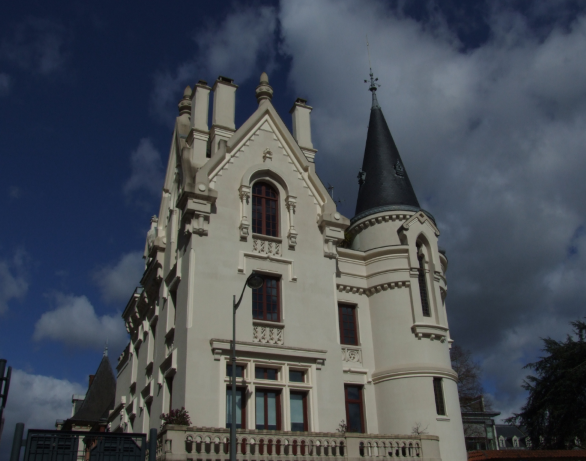
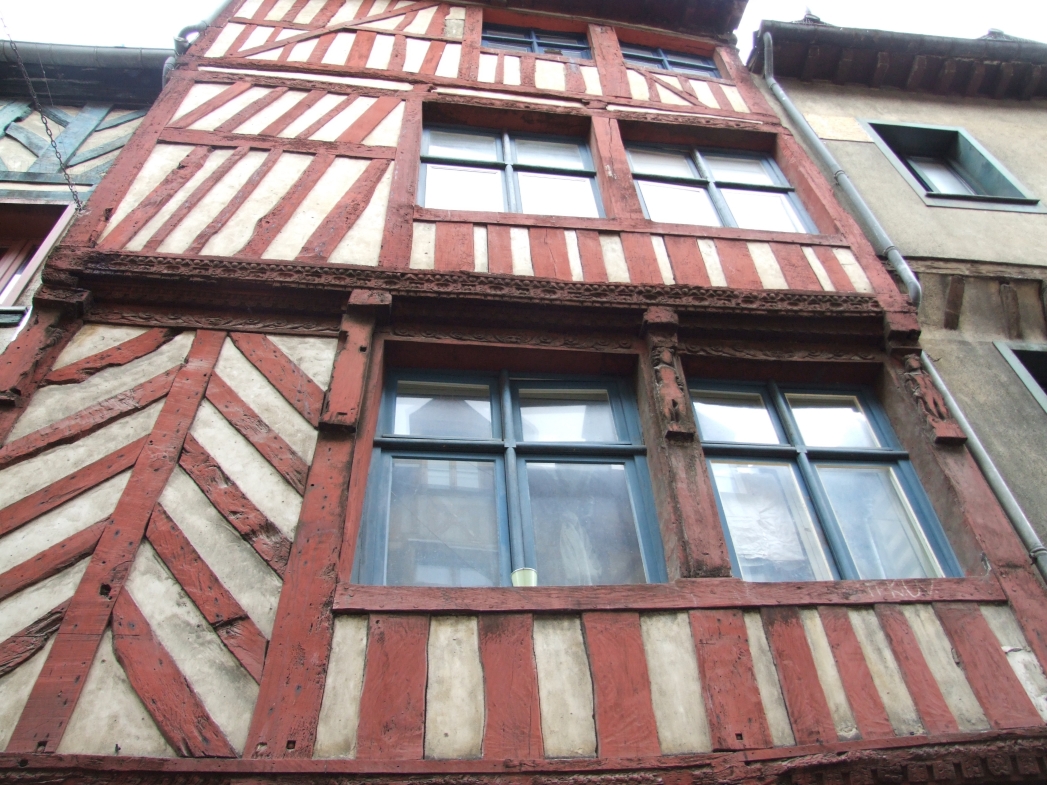
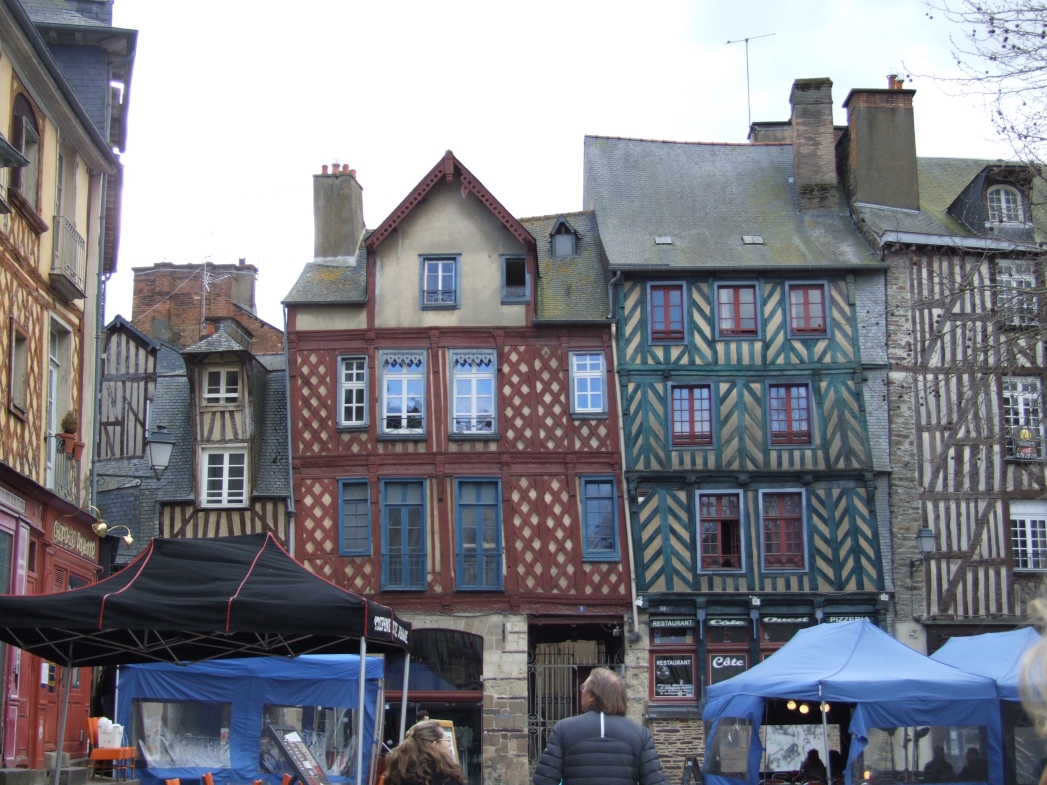
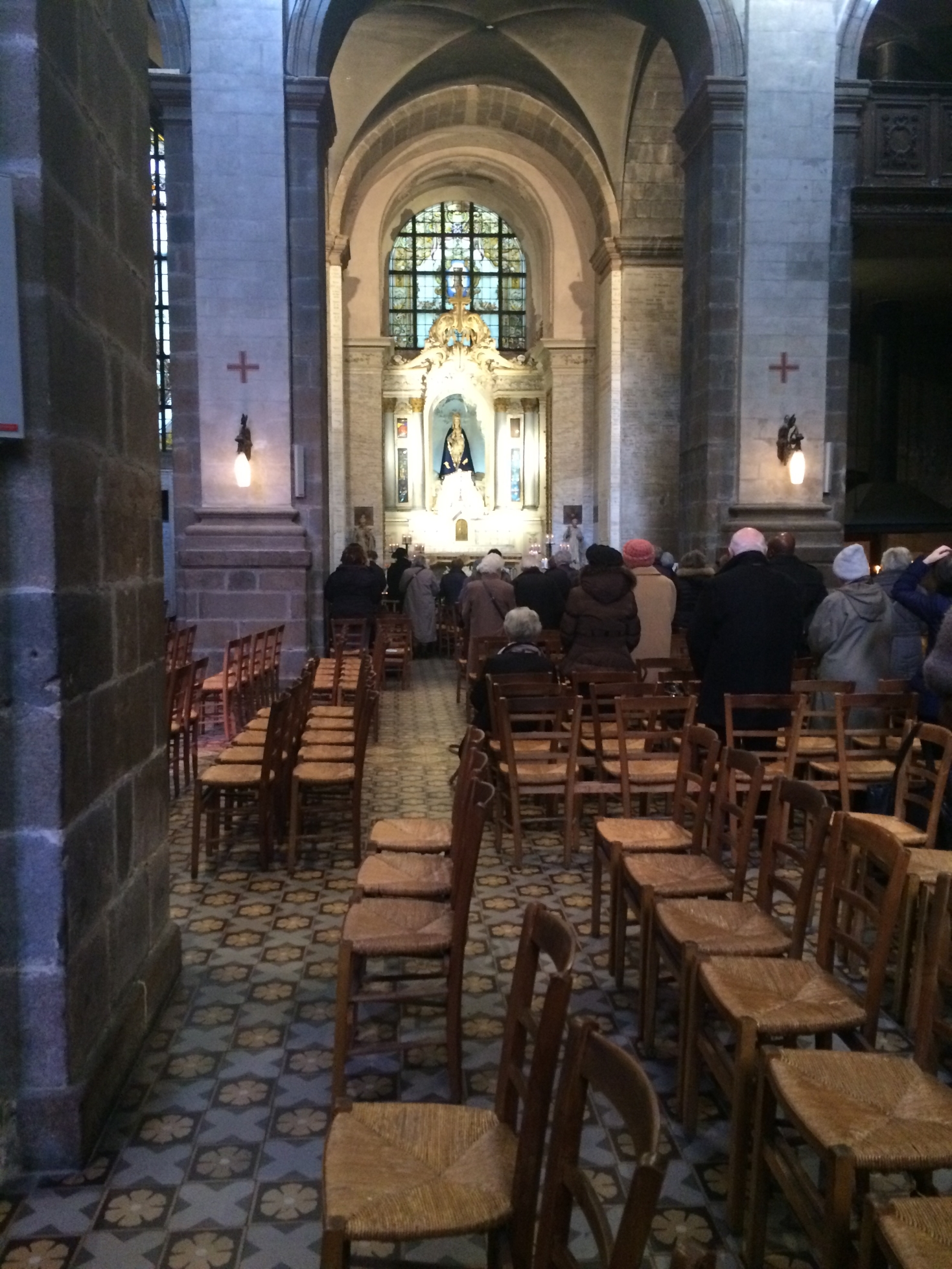
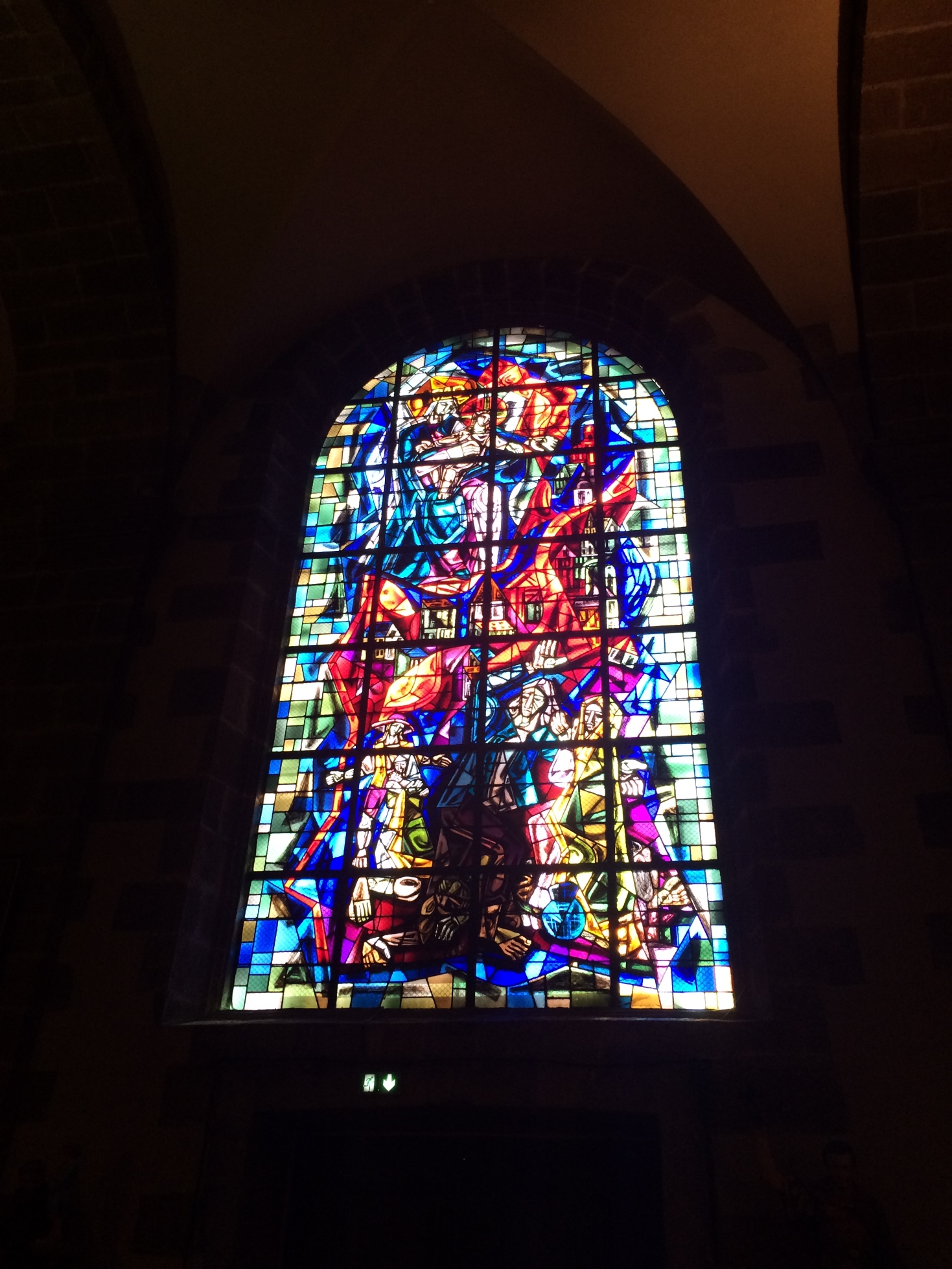
By the afternoon we were already chatting friendly with everyone. The day had been fun and I thought to myself “Yeah, this is going to be an awesome week”.
Eveliina Viljainen (FI)
Wednesday 09/03/2016
Today we visited Saint Malo and afterwards we travelled to “Le Mont-Saint-Michel”. The weather was the worst of the week until now.
Saint Malo, the historical part of the town, is a walled city in Brittany. The wall nowadays protects the city from the very aggressive sea, but during the Medieval times it was fortified too.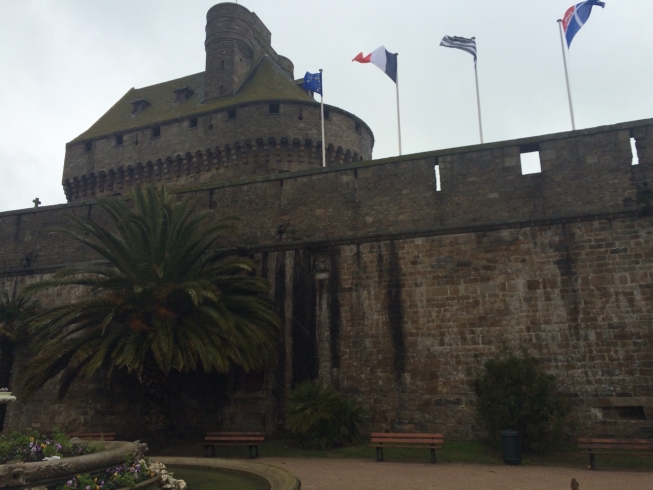
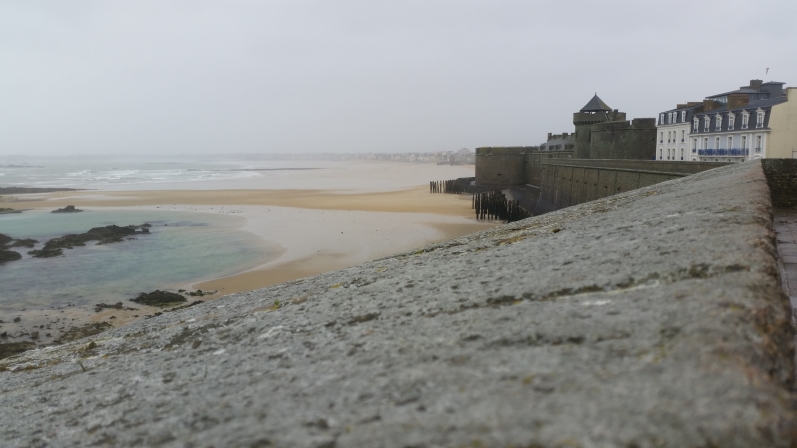
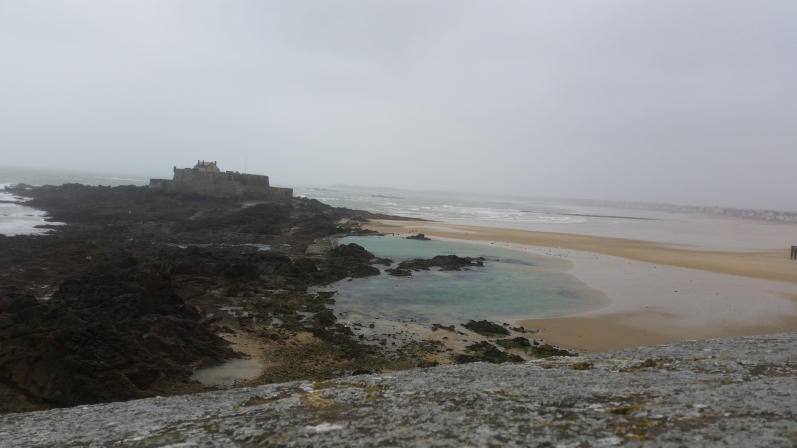
We walked around the wall but we had to make a lot of breaks and go behind the walls, because it was very cold and windy, like a little storm. Inside there were a lot of small cafés and restaurants. We also went shopping and took a lot of pictures.
At 1 pm we drove to Saint Michel. The mountain and also the bay have been part of the World Cultural Heritage since 1979. On top of the mountain island you can find the famous abbey Mont-Saint-Michel.
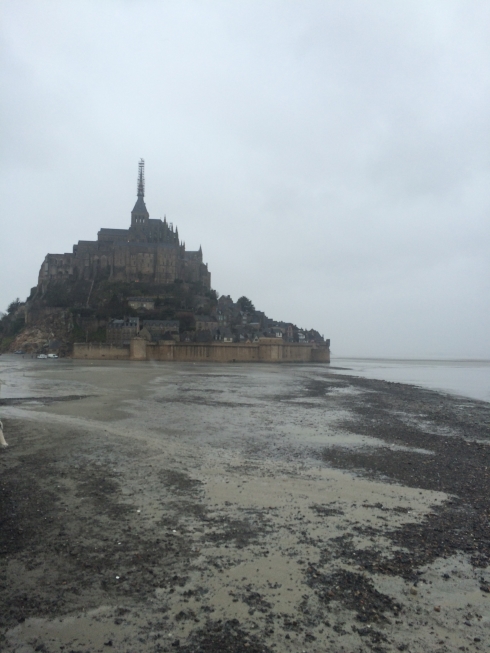
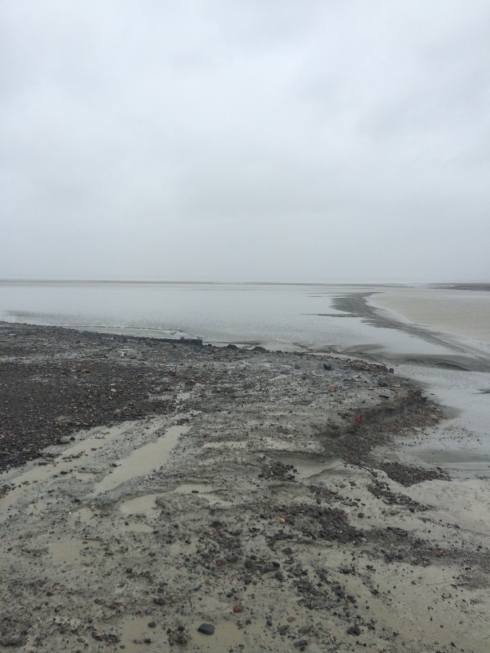
We went most of the way to the island by bus which had to stop in the middle of the bridge, so we had to walk the last part. The problem was the little storm which was so strong it blew some people down. Most of the students stayed inside and drank tea; only a small group went up and visited the abbey.
In the end we all were wet and freezing. But from my point of view it was an interesting and funny day.
Selina Huber (DE)
_____________________________________________________________________________________________________________________
The risk of information overload and the possibility of unlimited information
We are living in the information era because of the internet/technology revolution in the 21st century. Our WhatsApp-, Snapchat- and email accounts are flooding with messages from all over the world. We are getting too much information every second. This is what we call information overload.
On one hand you cannot relax and leave work or your social life behind, not even for just a minute, because everyone can reach you all the time. It would be good to just switch off your smartphone, but nowadays society just doesn’t approve of that.
On the other hand it’s easier to get information today and stay up to date on what’s happening around the world. This goes hand in hand with the worldwide access to the internet. Everyone can read all about scientists’ discoveries and this has made it very easy for people to do research on various topics and share what they know with others.
Yet, due to this sharing there is a lot of unreliable information on the internet. It’s important to use more than one source and check whether the source is actually truthful. It’s also necessary to find the piece of information that you actually need, not just some “nice to know” facts.
Also the problem with having fast access to the internet anywhere anytime is that you don’t actually bother to learn the information by heart. That’s why people today lack common knowledge. Again you need to remember to focus on the quality - not the quantity.
All this new information is reaching us and, while the computers are processing it really fast, the human mind can’t keep up with all of it. It causes us to delay our decisions or make the wrong ones too fast. This is the reason why we need to discuss this particular topic.
All in all this development is headed in the right direction, but we have to learn how to deal with it. This topic really concerns all of us, because we are the ones who are responsible for organizing, processing and creating information in the future.
Eveliina Viljainen(FI) & Selina Huber(DE)
<3
_____________________________________________________________________________________________________________________
Cultural differences
While staying with our host families we noticed several cultural differences, for example food. In the French families breakfast is usually just coffee or tea and maybe a croissant or no food at all. A typical German/Austrian breakfast consists of bread with Nutella or marmalade and a cup of coffee/tea. In Bavaria, roast pork is often served for breakfast. A Finnish breakfast is sort of bigger, for example Finns eat oatmeal, rye bread and/or fruits. We also noticed that in France people don’t cook the meal at home so often but they go out to eat. Dinner is served later in France (around 20:00) than in Finland, Germany or Austria (around 18:00).
We were surprised by how cold it is indoors in France. In Finland, Germany and Austria people are more used to the cold air so all the houses have a good heating system. Also in France and Finland the rooms tend to be smaller than in Germany and Austria.
There were also differences in the school schedules. For instance, in Germany, France and Austria school always starts at eight o’clock but while in France school always finishes at 17:30, in Germany and Austria it depends on the day (finishes around 13:00-16:30). Finland, on the other hand, is totally different here because the students get to design their own schedules.
The biggest cultural shock for me was the way French people greet each other. They give a kiss on both cheeks and to me that is weird because I’m used to just waving/shaking hands when I meet someone. –Eveliina (FI)
For me it was a cultural shock that everyone lives so far away from the school. At home my everyday school trip takes about 10 minutes but in France my host family’s house is situated an hour away from the school and they told me that most of the students live far away. –Anna (AT)
I was very surprised that here, there isn’t a sink or soap in every toilet. –Selina(DE)
Eve und Selina: text
Chrissy und Steffy: photos